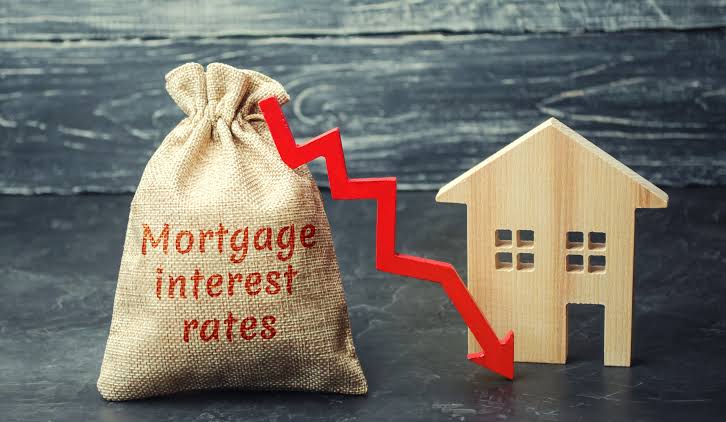Mortgage interest rates on 30 years fixed loans have dropped to 6.84%, the lowest in 7 weeks, offering relief to prospective homebuyers.
The interest rates on 30 years fixed loans have dropped to 6.84 percent, the lowest level in seven weeks, providing relief to those interested in purchasing a home.
The rate dropped from 7.09 percent last week, revealing this decrease on Wednesday. Freddie Mac reports that this is the sixth week in a row that interest rates have been higher than 7%.
Despite the fact that the recent decline provides some hope for individuals who are attempting to obtain financing, the present rate remains. The expectation that the central bank would reduce interest rates by the beginning of summer led to a fall in interest rates.
Because big lenders like Barclays, HSBC, and TSB have already indicated that they will be reducing the number of fixed-rate mortgage packages, it is now abundantly clear that other lenders will also be doing the same.
The recent decline in swap rates, which are a critical signal for mortgage pricing, has led specialists in the financial industry to predict that there will be additional reductions in the rates that consumers pay for their mortgages.
According to Mark Harris, who works at SPF Private Clients, these rate reductions are motivating for the borrowers and are likely to increase the amount of activity in the home market.
The lack of purchasers who have been waiting for cheaper mortgage rates will result in a surge of market activity, according to Adrian Anderson of Anderson Harris, who also emphasized the importance of this point.
At the start of this month, the Bank of England did not make any changes to the interest rates, and they remained at 5.25 percent. However, he did suggest that there is a possibility of a rate decrease occurring during the summer.
Governor Andrew Bailey expressed optimism over the future of the economy; nevertheless, he highlighted that additional evidence of lowering inflation is required before any rate reductions are implemented.
Inflation and Its Impact on Mortgage Rates
The United States’ inflation slowed down more than expected in April, sparking widespread speculation that the Federal Reserve may cut interest rates earlier than expected.
Traders are currently predicting that there will be a possible reduction in interest rates in September. This viewpoint has had a beneficial effect on the market in the United Kingdom, which is now beginning to contemplate the idea of lowering interest rates.
Despite these adjustments, mortgage rates remain relatively high compared to the beginning of 2022, when they were approximately half of their current levels.
Redfin Corporation’s recent test of homebuyer demand demonstrates the ongoing impact of this persistent rise in interest rates on the housing market. This measure revealed that the desire for homes reached its lowest level in two months.
There has been a recent decrease in mortgage rates, which provides a form of financial relief for individuals who are considering purchasing their first apartment or house. On the other hand, the rates are still approaching seven percent, which indicates that affordability is a concern for a lot of buyers.
Lisa Sturtevant, the chief economist of Bright Multiple Listing Service (MLS), highlighted the ongoing challenges of high housing prices and cash buyer competition.
The market has responded to the earlier declines of less than 7% in a variety of ways. An illustration of this would be the fact that a fall in November 2022 led to an increase of 4% in the number of mortgage applications, whereas in July 2023, a similar decrease generated only a rise of approximately 1.3% in the number of applications.
This mismatch draws attention to the fact that the housing market is still experiencing challenging times, as there is a limited supply of homes available and prices are high across the board.
Economists like Sam Khater from Freddie Mac believe that the slight reduction in interest rates may provide homebuyers with some financial flexibility so that they can better manage their finances.
However, in order for rates to decrease even further, there must be ongoing evidence that inflation is growing closer to the target of 2%.












